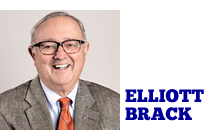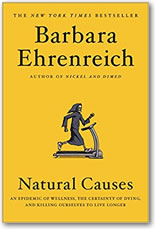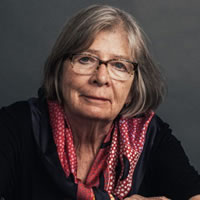By Elliott Brack
Editor and publisher, GwinnettForum
MAY 29, 2018 | “DNR” is an abbreviation that means Department of Natural Resources to some.
 But is can also mean “Do Not Resuscitate” to those who want no extended medical procedures or apparatus hooked to their body in case of a serious illness.
But is can also mean “Do Not Resuscitate” to those who want no extended medical procedures or apparatus hooked to their body in case of a serious illness.
The author Barbara Ehrenreich has jumped into this arena with her new book, Natural Causes. She argues that: “Being old enough to die is an achievement, not a defeat, and the freedom it brings is worth celebrating.”
To those of us of a certain age, she brings a refreshingly pleasant look to the dying process, accepting it as natural, and argues forcefully against a body accepting modern medical efforts to keep the body going, as unnatural.
Essentially, she asks us: who is in charge?
Are we going to allow others, our family, our doctor, even strangers, to make this determination? Shouldn’t this be something that the living being of ourselves should make that decision?
She asked: “We seek control over our bodies, our minds and our lives. But who or what will be doing the controlling?”
Ms. Ehrenreich, now age 76, was born in Butte, Montana. For years she did as most of us do, almost blindly accepting the advice and diagnosis of medical professionals as something like the Holy Grail. The former Guggenheim Fellow had check ups, procedures, and found herself often put off by these standard procedures. Eventually, she began to question whether her dentist really needed another X-ray, or even whether she should be going through regular check-ups.
She brings us up to date of the history of physical exams: “The annual physical exam can be seen as a ritual. Introduced in the 1920s, and recommended by the American Medical Association about a decade later, the actual physical loomed as a high street hurdle in the life of any health-conscious medical consumer, a trial, so to speak, to determine innocence (health) or guilt (disease).”
Such exams, with their various tests, can give a doctor a number, or an inkling of what is happening to the body. But all too often, this merely results in more tests, “to make sure,” and the body is probed, x-rayed, and studied. All this in the name of what the medical community contends as good health, but what cannot always be confirmed to work that way.
 What most of us hope for in death is that we do not have a long, agonizing stretch of time on the death bed, but go out comfortably, even in our sleep, or just by collapsing. (That’s one place the “DNR” comes in.)
What most of us hope for in death is that we do not have a long, agonizing stretch of time on the death bed, but go out comfortably, even in our sleep, or just by collapsing. (That’s one place the “DNR” comes in.)
One way to die without extreme procedures is to make sure that it is us, the person death is confronting, who is in charge, not the medical profession. Extending our life does not always make it better.
The author suggests that we should insist on “a non medical death, without the torment of heroic interventions to prolong life by a few hours or days. Furthermore we now potentially have the means to make the end of life more comfortable, if not actually pleasant, hospices, painkillers and psychedelics even, in some places, laws permitting assisted suicide.”
Barbara Ehrenreich has done mankind a service by entering into this discussion.
Her other works include Nickel and Dimed, On (Not) Getting By in America (2001); Bait and Switch: The (Futile) Pursuit of the American Dream (2005); and Bright-sided (2009), on the dangers of ‘positive thinking’ at the expense of, among other things, adequate healthcare.
May we all live a good life, even with death.











Follow Us